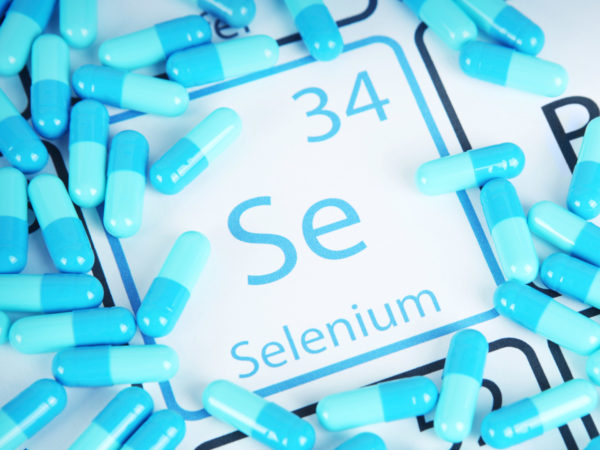Does Too Little Selenium Cause Cancer?
I recently heard that low levels of selenium are related to liver cancer and possibly breast and other types of cancer. What’s the story here? Should we be getting more selenium?
Andrew Weil, M.D. | November 7, 2016

Humans require trace amounts of selenium, an element found in soil, water, and some foods to help the body defend itself from cellular damage caused by free radicals. One food rich in selenium is Brazil nuts. (One nut gives you 200 mcg, and the National Institutes of Health advises eating these nuts only occasionally because of their unusually high selenium levels.) Other sources are brewer’s yeast, wheat germ, garlic, grains, sunflower seeds, walnuts, raisins, shellfish and both fresh and saltwater fish.
One of selenium’s most valuable roles is as a cofactor of glutathione peroxidase, an important antioxidant enzyme. Selenium also helps support a strong immune system, regulates thyroid function and plays a role in the prevention of cataracts and heart disease. Some evidence suggests that it may help reduce the risk of prostate cancer.
The latest news about selenium and cancer comes from a large European study published in August 2016 in the American Journal of Clinical Nutrition. It enrolled 477,000 individuals who were followed for 10 years. Results showed that high blood levels of selenium were linked to a decreased risk of developing liver cancer for those in the study, even after taking into account all the other major risk factors for the disease. The new data show that the third of the European population with the lowest selenium status have a 5 to 10 fold increased risk of liver cancer, which is the second most common cause of cancer death worldwide. The researchers noted that European soils have low concentrations of selenium, especially in comparison to North America, and that varying degrees of deficiency are common there. The investigators also commented that earlier studies had suggested a similar relationship between a person’s selenium status and the risk of developing colon cancer and autoimmune thyroid disease.
In news reports, study leader David J. Hughes, Ph.D., was quoted as saying the new study results “tentatively suggest” that where selenium is lower than optimal, as it is for most people in Europe, increased intake may help prevent liver cancer. But he noted that risks of the disease are higher among overweight and obese individuals and that in addition to maintaining a healthy weight, other protective measures would include moderating or avoiding alcohol consumption and stopping smoking. He added that the new findings are based on a single study and need to be validated by additional studies before making any public health recommendations about selenium supplementation.
Dr. Hughes also noted that there is evidence from other studies that selenium intake may affect the risk of breast cancer, colorectal cancer and some types of prostate cancer.
The latest on selenium intake and prostate cancer risk comes from a 2014 analysis of data from a major U.S. study that began in 2001 and ended in 2008. It looked at the effect of supplementing with 400 IU of vitamin E, 200 mcg of selenium or both on prostate cancer risk. The analysis indicated that men who had high selenium levels when they joined the study had almost double the chance of developing a high-grade (aggressive) prostate cancer if they took a selenium supplement compared to men who took a supplement but had low selenium levels when they enrolled. According to the National Cancer Institute this finding was unexpected. Earlier studies had shown that men with low selenium levels had an increased risk of prostate cancer that was reduced when they took supplements.
I’ll report future developments as they occur.
Andrew Weil, M.D.
Source:
David J. Hughes et al. “Prediagnostic selenium status and hepatobiliary cancer risk in the European Prospective Investigation into Cancer and Nutrition cohort.” American Journal of Clinical Nutrition, August 2016 DOI:10.3945/ajcn.116.131672









